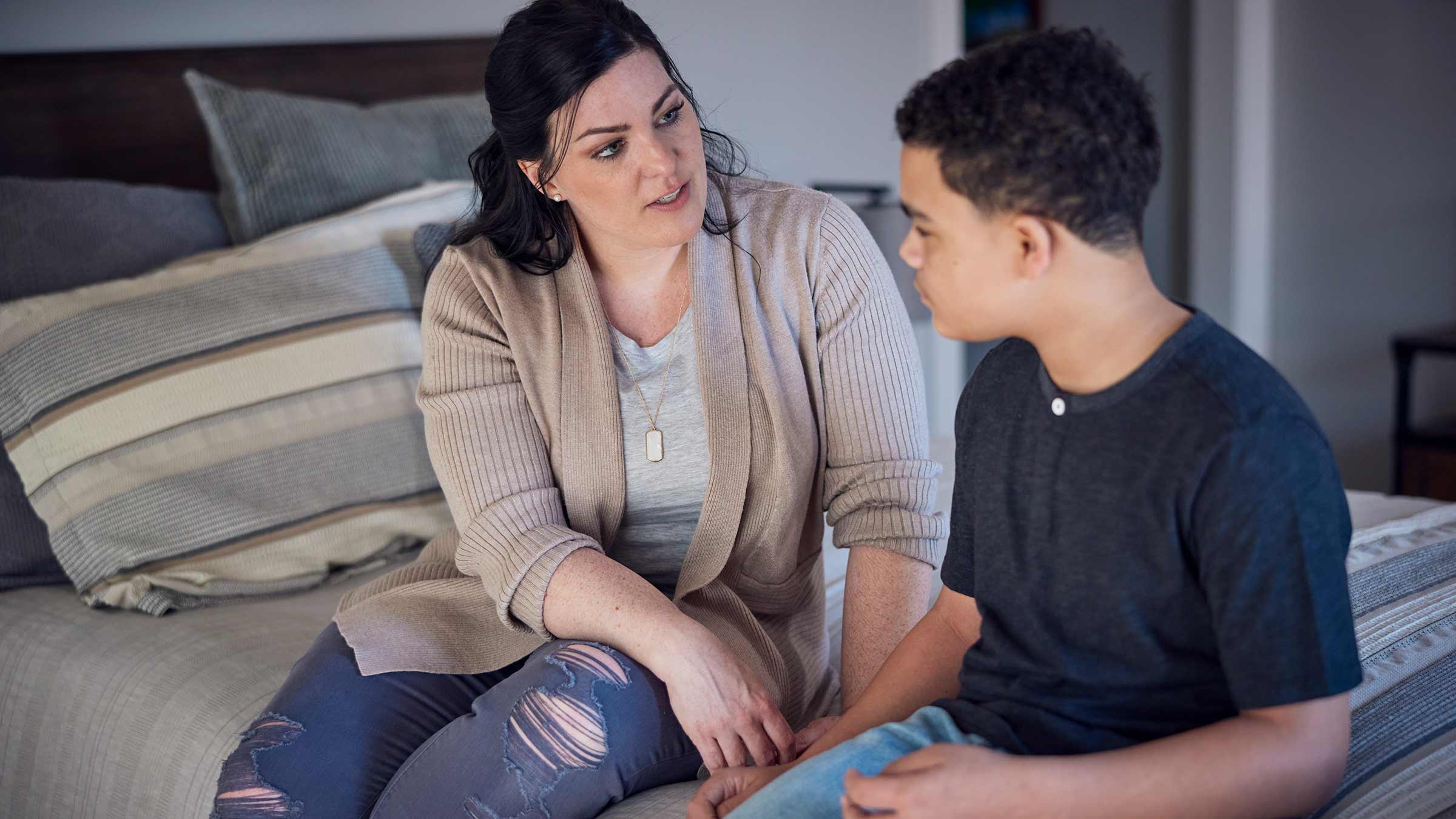
You’re about to have surgery and you might be worried about it, the risks and how long it will take to recover. That’s normal for an adult or child alike.
Now that you’ve shared it with family and close friends, what about your children? It will certainly affect them in some way. But what exactly should you say? You don’t want to scare them. And yet you also want to be honest without giving them details they can’t quite handle yet.
Even young children can sense when something seems different or worrisome within the family. If we try to protect children from topics that affect them, they’re likely to fill in the blank with their own imagination. And that can lead to worry and misconceptions.
Children typically cope better with situations when they know what’s happening and feel comfortable asking questions. How much to share and how you share this information will depend on the individual needs of your child. If you don’t have all the answers, it’s OK to say you don’t know, but that you’ll try to find out.
Tips for telling your kids about your upcoming surgery
It’s OK if the conversation triggers emotions — yours or theirs. When we let our children see us cry, it shows them it’s OK to feel emotions and talk about them. You can let them know you’re feeling sad, that it’s fine to feel sad, and that emotions pass. It may be helpful to explain to your child that they aren’t the reason you’re feeling sad.
Be mindful of what your children have heard about surgeries. We may not remember that their grandparent had a surgery with complications or a family pet’s surgery that didn’t go well. What they already know about surgery will affect how they think about your upcoming surgery, so you may have to share how it’s different.
Discuss how it’s going to affect their routine. For example, “Grandma will pick you up from school while Mom is healing.” They might need reminders to be gentle around your body after surgery because you're recovering.
Help identify a clear role for your child after the surgery. In that way, they’ll know how they’re affected by the change in routine. Roles might look like getting you snacks or a drink, drawing get-well pictures or helping more with specific chores.
Choose the right time, the right people and the right place to tell them. Try to tell your children when they’re not tired, hungry or distracted. If they’re toddlers, mention the surgery one to two days before; if they’re 3 to 5 years old, tell them three to four days before surgery. For school-aged children, give them one to two weeks before and teenagers several weeks before so they can have time to process the information and ask questions. Whenever you tell your children, consider having your spouse or another adult there as well, to help support them. Try to pick a location that’s private and quiet where they’re more likely to feel comfortable and offer their attention.
Examples of ways to tell your child about your upcoming surgery
What is surgery?
“Surgery is when doctors need to help fix or remove something on the inside of the body from the outside. To get to the part of my body, they make an opening, as small as they can, and close it up when they’re all done. I might have bandages to protect that part of my body from germs as my body heals.”
Will it be painful?
“When I have my surgery, the doctors will give me a medicine called anesthesia. The job of this medicine is to make sure I don’t feel any pain while the doctors help my body. Once the surgery is done, the doctor will stop giving the anesthesia medicine and I’ll slowly start to wake up. After surgery, I might be sore while my body heals.”
Is surgery safe?
“The doctors and nurses do their best to keep me safe during surgery. They can use medical tools to see how my body is doing during surgery.”
You may want to explain the medical tools that help keep you safe during surgery. Here are examples using simple and plain language:
- “A pulse oximeter is placed on my finger or toe to tell the doctors and nurses how I’m breathing during surgery.”
- “The blood pressure cuff is wrapped around my arm or leg to tell the doctors and nurses how fast or slow my blood is moving through my body.”
- “Heart electrodes are stickers placed on my chest and back to keep track of my heartbeat during surgery.”
- “An IV or medicine straw is a soft, bendy straw that allows the doctors and nurses to give my body medicine or water without having to drink it.”
After you talk to your child about your surgery, it’s helpful to ask them to share what they understand about it, in their own words. They may still be confused. If so, you can help clear that up, reduce their worries and then maybe do a fun activity together.

Support for cancer patients and caregivers
Learn about the support and resources available to you while undergoing treatment at The James.
Learn more



